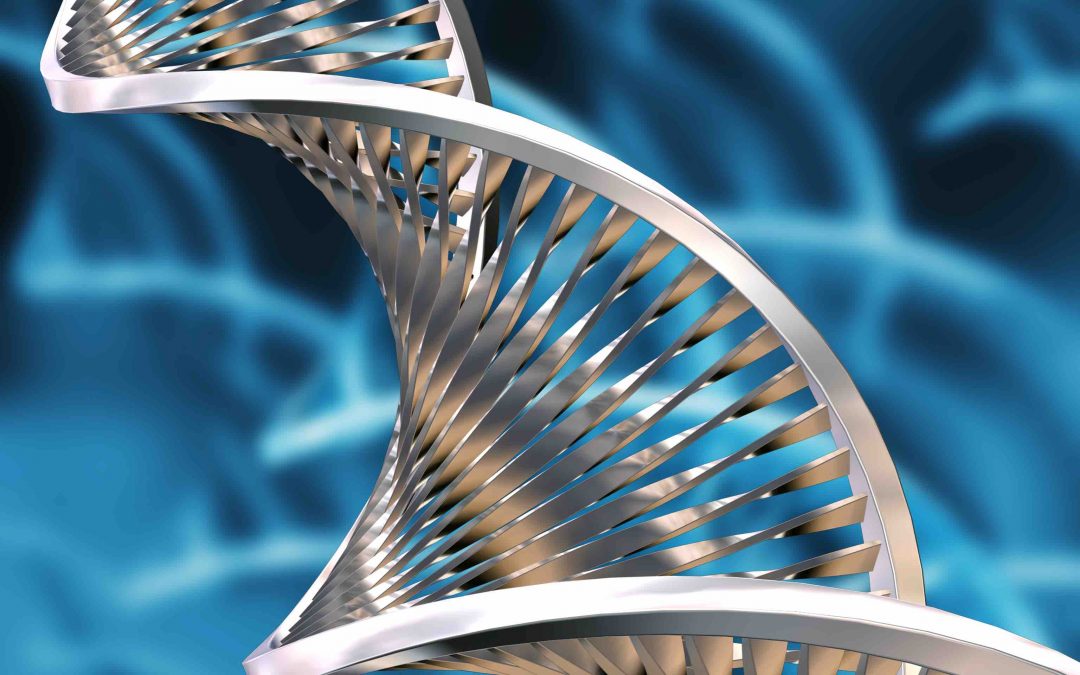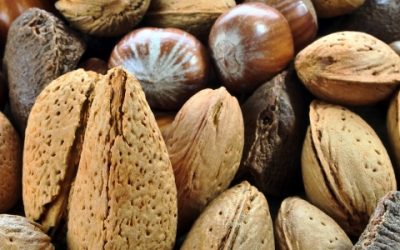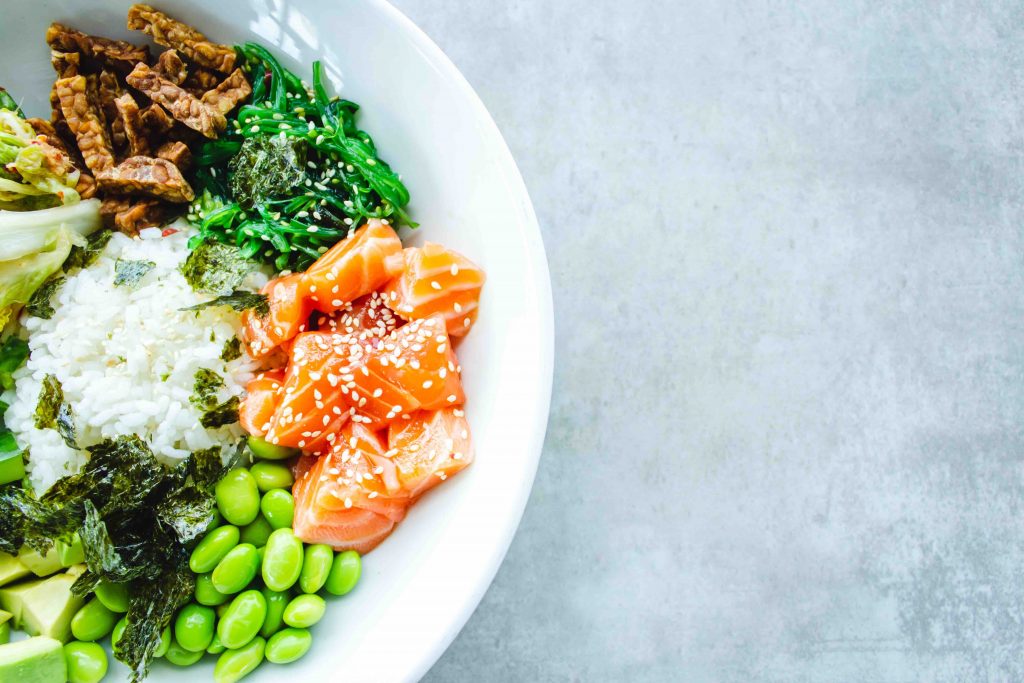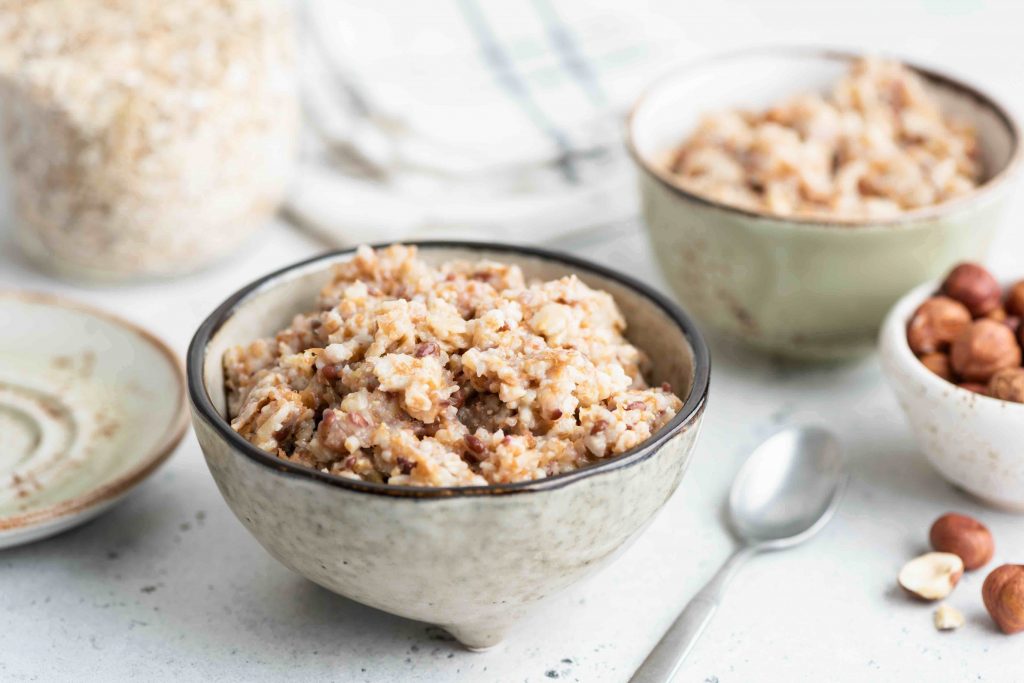We often embark on a health program knowing very little about our physicality other than what we see in the mirror or feel in our body when we exert ourselves. Technology now exists – at an affordable price – that enables us to know about our physical make-up right down to our DNA. Through a simple saliva test, we can uncover hidden information that is vitally important to help set and achieve our wellbeing goals.
Epi Genetic What?
There are two key factors influencing the person you are today: nature (your DNA, provided by your parents) and nurture (your environment and lifestyle). Research shows your environment has a huge effect on your genes: this is called epigenetics. From birth, nature had a genetic plan for you but your environment, and how it informs your nutrition and exercise routine, can alter how your genes express themselves.
To simplify, some of our genes are fixed and can’t be changed (hair, skin and eye colour are the obvious ones), but then there are those that can be ‘manipulated’ by you via your lifestyle i.e diet, exercise, stress levels, and emotional state.
Knowing how you can best ‘manipulate’ your genes for a desired outcome, is the key to good health and longevity!
For example, if you have a variation on your GSTP1 gene, it will impact the way your body deals with oxidative stress. You won’t remove toxins from your body as efficiently, which can lead to cellular inflammation (and we know this is the number #1 cause of ageing). Plus, it leads to other more chronic illnesses (including cancer). If you have this gene variation, it is important that you allow for recovery after a heavy bout of exercise. And it would be a good idea that you also engage in stress management practices – such as meditation and/or yoga, and supplement with an antioxidant – especially glutathione.
I have this gene variation. Prior to doing a DNA Test and discovering this – I would train six times a week (hard) and only allow one day recovery. While this sounds like a really good thing to be doing for my health…. it was actually the worst thing I could be doing.
With this gene variation, it means my body’s recovery is slow and training over five times a week with minimal rest, or engaging in high intensity interval training, I was adding unwanted stress to the body. Stress raises cortisol levels and leads to increases in fat around the abdomen. The solution is not to train more, but to train smarter (and possibly less!).
But how do you know what your body’s response will be? Well, unless you really listen to your body and experiment with different types of exercises and nutrition plans, it is hard to know what is best for you. This can take years, and that’s if you have a sound understanding of physiology and nutrition. Doing a DNA Test is the easiest and most reliable way.
By looking into your DNA, we begin to understand your body type and can create your optimal training, nutrition and supplementation plan – and that is epigentetics!
So, Is There a Fat Gene?
Yes there is! And it helps explain why some people simply ‘look at a piece of cake’ and put on weight. The reality is, this gene SNP called FTO (nicknamed the fatso gene) is also associated with type II diabetes and metabolic syndrome, not just the struggle to maintain a healthy weight. About 40% of the population possess this gene.
The FTO gene inhibits the brain to signal that you are full. So, while you think your stomach dictates your satiety level, it is actually in your brain. People with this gene can eat a full meal and still not feel full. So, they will go for seconds, and even thirds. The Fatso Gene doesn’t just lead to larger portion sizes, it also tempts you to eat calorie dense foods that are high in fat and sugar such as cakes, nuts, cheese and breads.
Sound familiar?
If you feel you have this gene, you can outsmart it through diet, exercise and supplementation. (Yes, epigenetics)
If you have this gene variation, you can control your weight by managing portion sizes and eating what your body needs. Make a conscious effort to eat slowly, enjoying each mouthful. Don’t chase the elusive feeling of fullness, rather fuelling your body’s needs.
It’s also a good idea to eat lean protein at each meal and fill up on crunchy vegetables. Employ healthy eating techniques that help you burn more fat.
Drinking plenty of water before a meal can trick yourself into feeling fuller. There are some supplements that also help, such as:
Berberine – a bioactive alkaloid found in a number of plants and shrubs with a long history of use as a supplement. There is evidence that it activates an enzyme (AMP-activated protein kinase) that regulates metabolism.
Vitamin C – Increased Vitamin C levels have been associated with body fat oxidation and have been associated with lower BMI (body mass index).
Alpha Lipoic Acid – is an antioxidant commonly found in food which helps the body restore certain vitamin levels and breaks down carbohydrates. It is also used to decrease blood sugar levels.
Individuals with a SNP in this gene can benefit from supplementation with ingredients that:
• Support healthy BMI
• Regulate metabolism
• Decrease blood sugar levels
And the best thing you can do to negate the effects of this gene is to exercise. You can actually turn this gene off through exercise.
One Size Does Not Fit All
Hopefully, now you can start to understand why two people may follow an identical diet and training program, yet have totally different results. Chalk this up to genes! People inherit variations in their genes and even slight variations can have a profound effect on how your body responds to diet and exercise.
Genes are segments of DNA, which is found in all your cells. DNA is essentially a chemical database for your body, telling it how to behave and interact on a cellular level. A basic gene can have many different forms, such as the normal variations of the gene that determines specific hair colour.
Similarly, your genes determine how complex chemical reactions play out within your body. A particular gene may dictate how your body metabolises a certain food. Some people might have a slight variation in that gene. As with the hair colour gene, the variation in this gene is perfectly normal. But just as you may end up with a different hair colour, you also may end up reacting differently to a particular diet and training program if you have that genetic variation.
Today, a handful of tests are available that can detect some of these genetic variations and predict how you’re likely to respond to certain training methods.
Discovering Your DNA
There are numerous benefits of doing a DNA test. Aside from knowing your DNA make-up to best devise an exercise & nutrition strategy that will deliver maximum results, it is also useful for your long-term health. Knowing what conditions you are genetically predisposed to allows you to adjust your lifestyle to reduce the risk of that condition manifesting in the future. For example, since heart disease is hereditary in my family, I keep myself fit and don’t have a diet high in saturated fats.
Knowing your health blueprint allows you to be proactive, rather than reactive, when it’s often too late!
The test I offer as part of my Tailor Made For Your Program, assesses variations in 18 genes related to cardiovascular health, fat metabolism, bone health, antioxidation, VO2 max and fitness, inflammation (Ageing) and recovery. The test involves a simple cheek swab, and within several weeks you receive a report outlining the results on the genes (and their variations) that are assessed.
No more hit and miss, and no more forever dieting and wondering why you don’t lose weight or feel vital. Working within your genetic profile saves, time, money and a lot of frustration as to why you do’t get results when following a prescribed health regime.
I did a DNA Test about 10 years ago when the technology was still relatively quite new. However, it gave me enough insight on what diet and exercise program I should follow, and the best supplements to take to maximise my genetic profile. Although I was relatively healthy, I did make simple modifications to my life style that have made a huge difference.
Now, whenever I do a health analysis, my biological age is nearly half my chronological age!!
It goes to show that you can merrily train away, armed with plenty of knowledge, but if you don’t know your genetic profile, you may incorrectly apply this knowledge, and your training may be inefficient or may even have adverse effects on your overall health.
One size does not fit all, and to really enjoy success, I highly recommend you find out your DNA and have a program tailored for you. Once you know your genetic profile, you know it for life, it doesn’t change. The genes you have today are the ones you’ll have tomorrow. It’s about making the most of what you’ve got, taking steps to prevent any disease to which you’re predisposed, and devising a more specific fitness program to maximise your training. For a small investment, you can make a priceless change to your long-term health!
If your are interested in Doing this DNA Test which includes:
- A Genetic Profile Report
- A 30 Day mild Cleanse
- A Wellness program to follow your Cleanse
- 4 weeks of your personalised Supplement Regime
If you would like to learn more fill in the form below and i’ll be in touch.
Contact Form
Definitions
DNA (Deoxyribonucleic Acid)
A DNA molecule consists of a long chain of nucleotides that are composed of deoxyribose (a 5-carbon sugar), a phosphate group linked to the bases (nucleotides) and adenine, thymine, cytosine and guanine. Within cells, DNA is organised into structures called chromosomes. The set of chromosomes within a cell make up a genome. DNA contains the genetic code that controls the production of proteins in living organisms. DNA determines the structure, function and behaviour of the cell. An important property of DNA is that it can replicate itself. This is critical when cells divide because each new cell needs to have an exact copy of the DNA present in the old cell.
Gene
A sequence of DNA that controls a particular cell function by governing the synthesis of a specific protein.
Genetic Disorder
A hereditary condition that results from a defective gene or chromosome.
Genetic Marker
A sequence of DNA that has a known location on a chromosome and is known to be associated with a particular gene or trait. Some genetic markers are associated with certain diseases, and detecting these genetic markers in the blood can determine whether someone is at risk of developing the disease. They are also used as a reference point for mapping other genes.
Chromosome
A threadlike component in cells that consists of a single, long molecule of DNA coated with proteins. Genes are carried on the chromosomes. Each cell in the human body has 46 chromosomes in its nucleus.




















